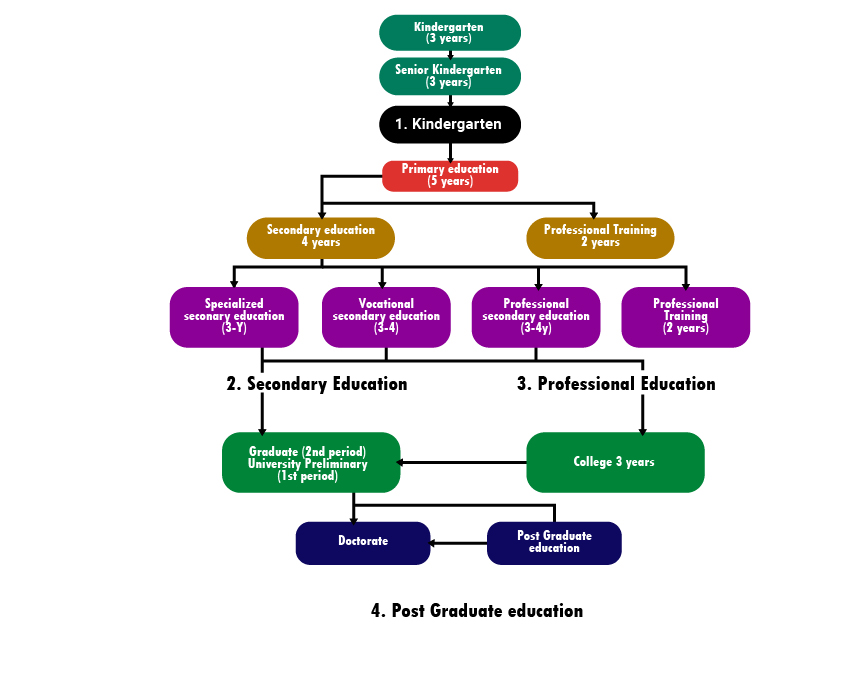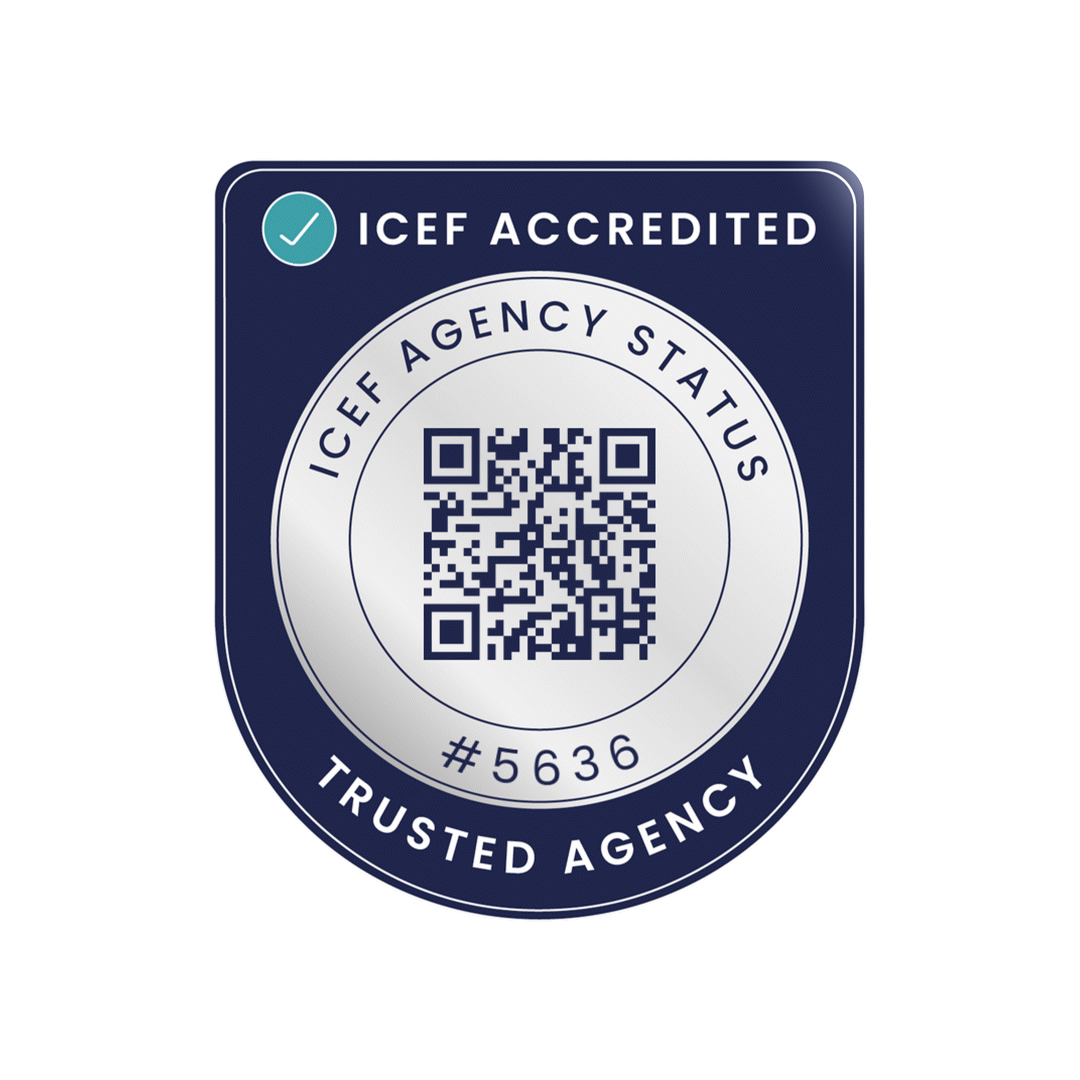Quick Enquiry
The United Kingdom (UK) is reputed for its excellent quality of education, interactive teaching methodology, top ranking universities and great student satisfaction. England is a very unique place on earth, offering a rich multicultural atmosphere.
Facts About UK
- Name: United Kingdom of Great Britain and Northern Ireland.
- Official Language : English.
- Capital : London.
- Currency : Pound Sterling (GBP).
- Population : 68.09 million Religion : Christian 59.5%, Muslim 4.4%, Hindu 1.3%, other 2%,none 25.7%, unspecified 7.2%, Literacy rate : 99%.
Why Study in UK
- Internationally recognised universities & qualifications.
- The UK is a tolerant,multicultural country.
- Safe country to live and study.
- Wide range of courses on offer.
- Largest library in the world.
- A cheap study destination.
- Free healthcare to keep you healthy.
- Work opportunities while you study.
- Highest student satisfaction rating.
- Work permit after study.
UK Education System
Higher Education in UK are classified into 3 different categories:
- College.
- Universities.
- Higher education Institution.

Tuition Fees & Living Cost
| Sl.no | Study Program | Average fee |
|---|---|---|
| 1 | Undergraduate bachelor degree |
GBP 10,000 to GBP 20,000 per year |
| 2 | Postgraduate master's degree |
GBP 10,000 to GBP 20,000 per year |
| 3 | Doctoral degree |
GBP 15,000 to GBP 24,000 per year |
Following details are just average amounts. This can go high or low depending on the city you live in and how you manage
- Room rent – £350 to £500/month.
- Internet/ other costs – £40.
- Food – £160 to £200.
- Clothing – £60.
- Study Materials - £20.
Intakes
- September Intake The primary intake in UK is September intake. It is also known as autumn intake.
- January Intake January intake is the secondary intake. Not as many courses are offered in January intake compared to September intake.
- May Intake It is a least preferred intake and offered by few university/collage.
Documents Required for Admission
- Schooling certificate [ 10th and 12th ].
- Bachelor degree certificates with consolidated semester mark sheets.
- Statement Of Purpose(SOP)/ Motivation letter.
- Proof of English language efficiency like IELTS/TOEFL/ with scores not less than 6.5 or 90 respectively or Medium of Instruction Certificate from college / University.
- Passport Copy 6. Updated CV.
- Recommendation letters from your professors.
- Work experience certificates if you have any.
Work Rights and Stay Back
- 20 hr/week (during class timings).
- 40 hr/week (vacations).
- 24 months post study stay back ( Two year).
How to Apply for UK Student Visa
These are the 2 types of visas for which you might need to apply to become a UK student
- Short-Term Study Visa (available for 6 or 11 months) – for students who plan to study a short language course or take up a short period of research as part of a degree programme.
- Tier 4 (General) Student Visa – for students who enroll in an academic degree (Bachelor's, Master's, or PhD course). The Tier 4 Student Visa doesn't have a fixed period of availability; the length of your studies determines the length of this visa.
You can apply for a student visa at the UK embassy and you might need to have your fingerprints and photograph taken at a visa application center (to get a biometric residence permit) as part of your application.
Documents required for a UK student visa
- Completed visa application form.
- Passport or valid travel documentation.
- One passport-sized photograph.
- Proof that you can support yourself during your stay in the UK: 1,265 GBP/month if you live in London and 1,015 GBP/month for the rest of the UK.
- Parental consent, if you're under 18 years old.
- Tuberculosis test results (for citizens of certain countries).
- Proof of paying the visa application fee: 348 GBP.
- Immigration Health Surcharge: 150 GBP per year of study.
- Self-assessment form Appendix 8 with attached documents. (not required if you apply online).
- Other requirements that may vary depending on your country of origin.
Any documents that have to be submitted in support of the Appendix 8 form, which are not in English or Welsh, must be accompanied by an official full translation that can be independently verified by the UK Border Agency.
Yes, 10+2+3 system is accepted by UK universities for masters programs.
The International English Language Testing System (IELTS) for UK Visas and Immigration (UKVI) is the most preferred test of English language proficiency, accepted by almost all institutions in the UK and also recommended under UK visa rules.
Yes. It is possible in some cases. if your IELTS scores are lower than the ones demanded by the university, you might be asked to attend a pre-sessional course.
All students with Tier 4 visa are allowed to work for 20 hours per week during an ongoing session and full-time during vacations. Doctorate students van work full-time throughout the year
Yes, degrees from UK institutions are accepted worldwide and known for their quality of education.
Yes, absolutely. You'll be assigned coursework and projects, but unlike high school, no one will be there to hold your hand or tell you off if you fail to submit your homework in time.
As an Indian student, you have the option of choosing an on-campus accommodation or looking for an off-campus accommodation. Most universities in the UK offer halls of residence for students from other countries.
Living in an on-campus residence is a very cost-effective option, but you will need to apply for it separately and in time to secure a place for yourself.
If you are unable to find such accommodation or wish to live on your own, you can rent a place in a shared apartment or live with a local British family.Your Maryland study abroad advisor will also help you find housing that works best for you.
It varies depending on the age and educational background of the applicant. But, usually for GCSE, A level and foundation courses IELTS band scores 4.5 to 5.5 are required. In addition, band scores of 6 are required for Bachelor's degree programs, 6.5 for Master's degree programs, and 7 for doctoral degree programs.
Yes, our consultancy services are free of charge.
Tuition fees vary depending on the field of study and the university. Generally, tuition fees for most universities and fields of study range from 10,000 to 20,000 GBP per year. Some fields of study, such as medicine, require higher tuition fees; more than 30,000 GBP per year
When you arrive at a UK airport, you'll need to enter the UK through Immigration. You'll meet an Immigration Officer who will check your documents.
- If you are coming to the UK on a Tier 4 visa, please provide Immigration with your CAS statement, the first few pages of your offer from Maryland Study Abroad, your passport and your visa.
- If you are coming into the UK on a student visa, please provide Immigration with your visa letter, a copy of your unconditional offer and your passport.
Once you have gone through immigration, you can pick up your luggage and from there Maryland Study abroad staff will assist you.
If you are making your application from your home country you apply for your visa as soon as possible, but you cannot apply more than 3 months before the course start date as stated on your Confirmation of Acceptance for Studies (CAS).
CAS stands for Confirmation of Acceptance for Studies. The CAS is a unique reference number that confirms that the University has agreed to be your Tier 4 Sponsor (this is not the same as financial sponsorship) and that we have made you an unconditional offer of a place to study with us, and that you have accepted this.
If you come to the UK as a Tier 4 student, and you are studying a full-time postgraduate programme which is more than 9 months, you may bring dependants.
You should plan to leave the UK or make an application to extend your visa before your visa expiry date. If you stay in the UK after your visa has expired and you have not made a new application, you will be classed as an ‘overstayer’. You will not have legal permission to be in the UK, which means that you will not be allowed to study or work, and you may not be able to access other services, such as healthcare. You will also not be allowed to have a bank account. If you are living in private rented accommodation, your landlord must report this to the Home Office, which may result in action being taken against you.
You are also liable to be removed from the UK by the Home Office.
If you stay in the UK for longer than 90 days after your visa has expired, you will not be allowed to make an application to return to the UK for at least one year after you leave.
- September Intake: The primary intake in UK is September intake. It is also known as autumn intake.
- January Intake: January intake is the secondary intake. Not as many courses are offered in January intake compared to September intake
- May Intake: It is a least preferred intake and offered by few university/college
Internships may be available as part of your course.
International students do not need private health insurance when studying in the UK
